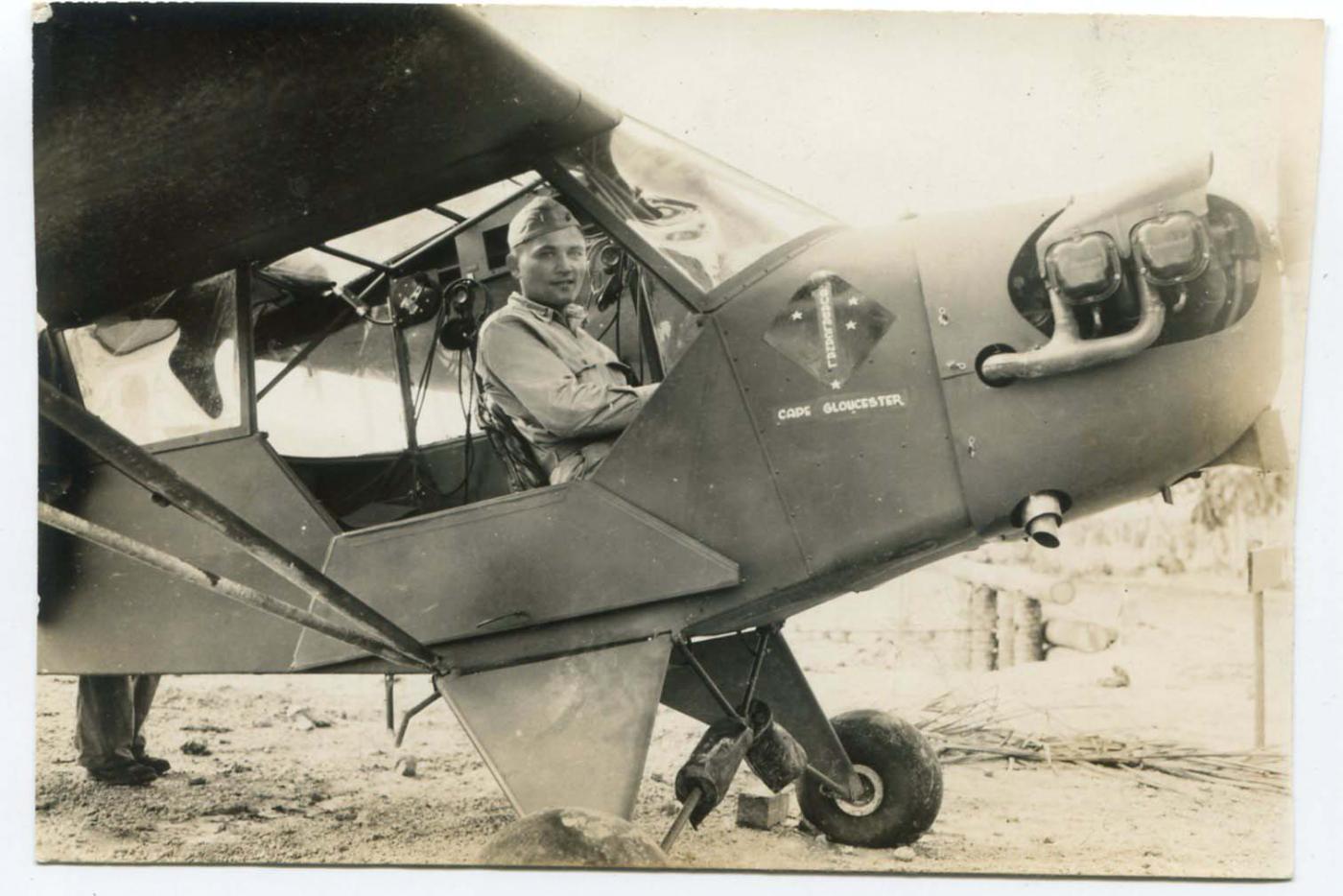The State Archives of North Carolina is excited to announce the availability for research of a new, rare collection documenting the distinguished U.S. Marine Corps career of Col. Richard M. Hunt, who served in WWII, the Korean War, and the Vietnam War with high distinction.
The Richard M. Hunt Papers are housed in the Military Collection at the State Archives, and are freely accessible for research in the public Search Room at the Archives. Colonel Hunt’s photographs are available for viewing online through the State Archives’ Flickr page.
“The Hunt Papers contain some of the rarest correspondence from the Vietnam War belonging to a Marine Corps commanding officer in the country,” says Matthew Peek, Military Collection archivist at the State Archives. “We hope to use the materials in the collection to add to the dialogue on the role of the Vietnam War in our country’s cultural memory and its lingering effects on those who served in our military.”
In January 1940, Richard Hunt moved to Raleigh, N.C., from Maryland and began work as a reporter for the Raleigh News and Observer and the Associated Press (AP), working under the byline “Dick Hunt.” Hunt stayed with the AP until May 27, 1942, when he chose to enlist in and train in the U.S. Marine Corps Reserves in North Carolina.
Richard Hunt served in WWII from 1942 to 1945 as a Marine Corps pilot, including with the Air Liaison Unit, Headquarters, 1st Marine Division, in the Pacific Theater. Hunt also served during the Korean War as a Marine Corps pilot from 1953 to 1954.
Hunt’s most distinguished military service was his time as the commanding officer of the Marine Aircraft Group 16 (MAG-16), 1st Marine Aircraft Wing, from March 1966 to October 1966 in Vietnam during the Vietnam War. Mostly a Marine Corps helicopter unit based out of the Marble Mountain Air Facility in Vietnam, Colonel Hunt held tactical command of Task Force Delta, including fixed-wing and helicopter support, during Operation Hastings against the North Vietnamese and Viet Cong forces in the summer of 1966. Operation Hastings was the largest combined U.S. military operation of the Vietnam War to that time. He also was involved in numerous missions with the South Vietnamese forces in 1966.
After his Vietnam War service, Richard Hunt would be named as the military aide to U.S. Vice-President Hubert H. Humphrey, serving from 1967 to January 1969. In this capacity, Hunt liaised between the vice president, cabinet members and their representatives, foreign government representatives, and other important government officials. Hunt assisted in keeping Humphrey fully informed and advised in sensitive military matters of the United States’ international involvements. Hunt advised the vice president on the United States’ expanding involvement in the Vietnam War, and issues such as underground nuclear testing in Nevada in 1968. Following his death in 2007, Colonel Hunt was buried with honors in Arlington National Cemetery.
The Hunt collection at the State Archives contains over 800 letters from Hunt to his wife during the Korean and Vietnam Wars, numerous photographs of Vietnam War combat and activities, Hunt’s original Marine Corps pilot flight logs from 1942 to 1967, and original Vietnam War U.S. State Department briefing books on the Vietnam War.
The most important materials in the collection are Hunt’s more than 350 letters from 1966 to 1967, with details about his unit’s combat activities and losses, his perspectives on the war, and opposition attitudes to American forces in Vietnam during the Vietnam War. The letters offer unprecedented levels of mission details on important 1966 operations, such as Operation Hastings, Operation Kansas, Operation Colorado, and Operation Prairie.

